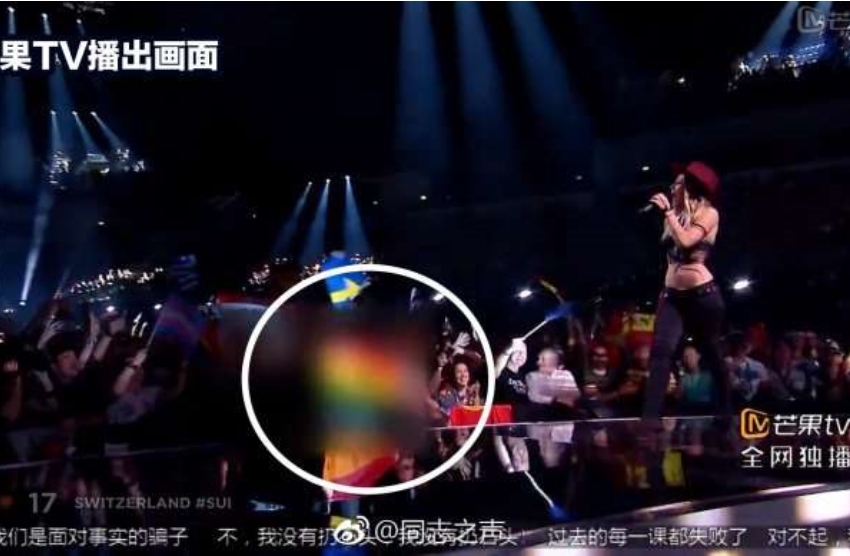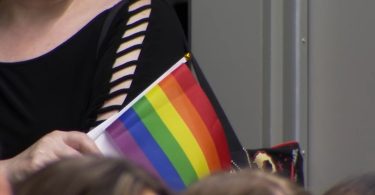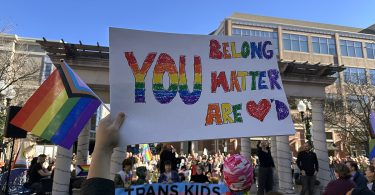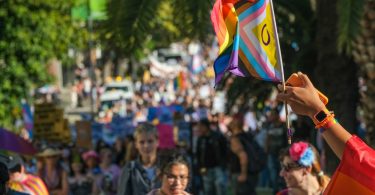China is in hot water for blurring rainbow flags during the Eurovision semi-final. | Photo: Mango TV
Eurovision banned the airing of this year’s final in China after it censored several moments in the semi-final including, LGBTI content.
The singing competition blocked China’s Mango TV from airing the second semi-final after it did not air Ireland’s performance. The song by Ryan O’Shaughnessy featured two male dancers acting out a romantic storyline.
Mango TV also blurred rainbow flags in the crowd and the tattoos of Albanian performers.
‘This is not in line with the EBU’s values of universality and inclusivity and our proud tradition of celebrating diversity through music,’ said a spokesperson for the European Broadcasting Union which airs the singing competition.
‘It is with regret that we will therefore immediately be terminating our partnership with the broadcaster and they will not be permitted to broadcast the second Semi-Final or the Grand Final.’
O’Shaugnessy welcomed the ban, saying it was a step in the ‘right direction’.
‘From the very start we’ve said love is love – whether it’s between two guys, two girls or a guy and a girl so I think this is a really important decision,’ he said.
‘They haven’t taken this lightly and I think it’s a move in the right direction so I’m happy about it.’
“Love is Love” @Ryan_Acoustic reacts to the news that the EBU have terminated China’s Mango TV from broadcasting #Eurovision. For censoring #Ireland‘s performance due to LGBT content. pic.twitter.com/gNlvJeFJti
— BBC Eurovision🇬🇧 (@bbceurovision) 10 May 2018
Gay content is ‘abnormal’
Online broadcaster, Mango TV, is linked to the state run Hunan Broadcasting System. The HBS is China’s second-largest television network.
LGBTI content is banned on film and TV in China, but in July last year it also banned gay content from appearing on the internet, labelling it abnormal.
But a viral protest remarkably helped overturn a ban on gay content on China’s popular microblogging site, Weibo.
In April, Weibo announced to its 397 million users that it would clean up its platform and ban homosexual and violent content from the site.
But an #IAMGAY hashtag went viral, forcing Weibo to backtrack on its decision. The move gave the LGBTI community a rare victory.







